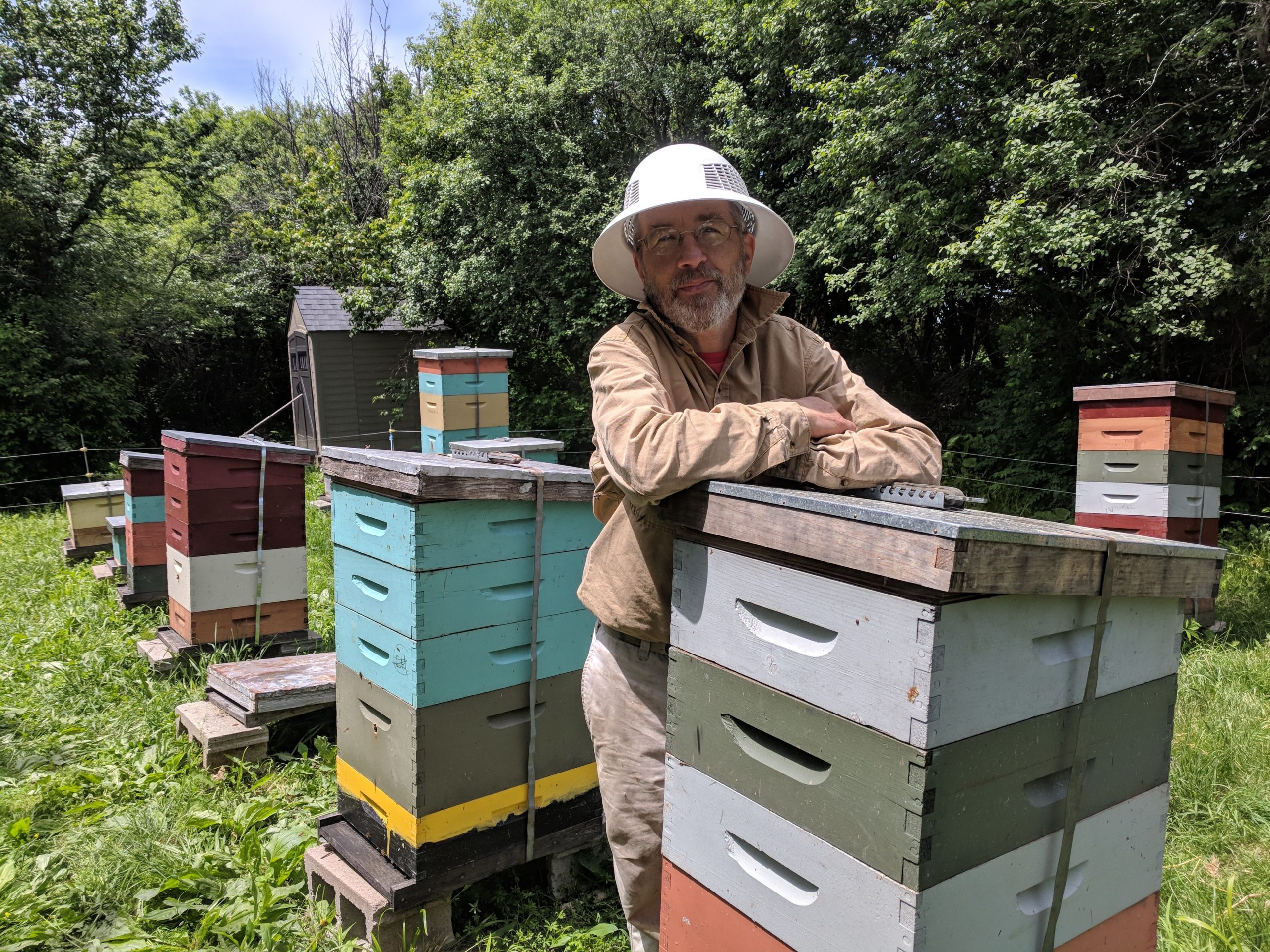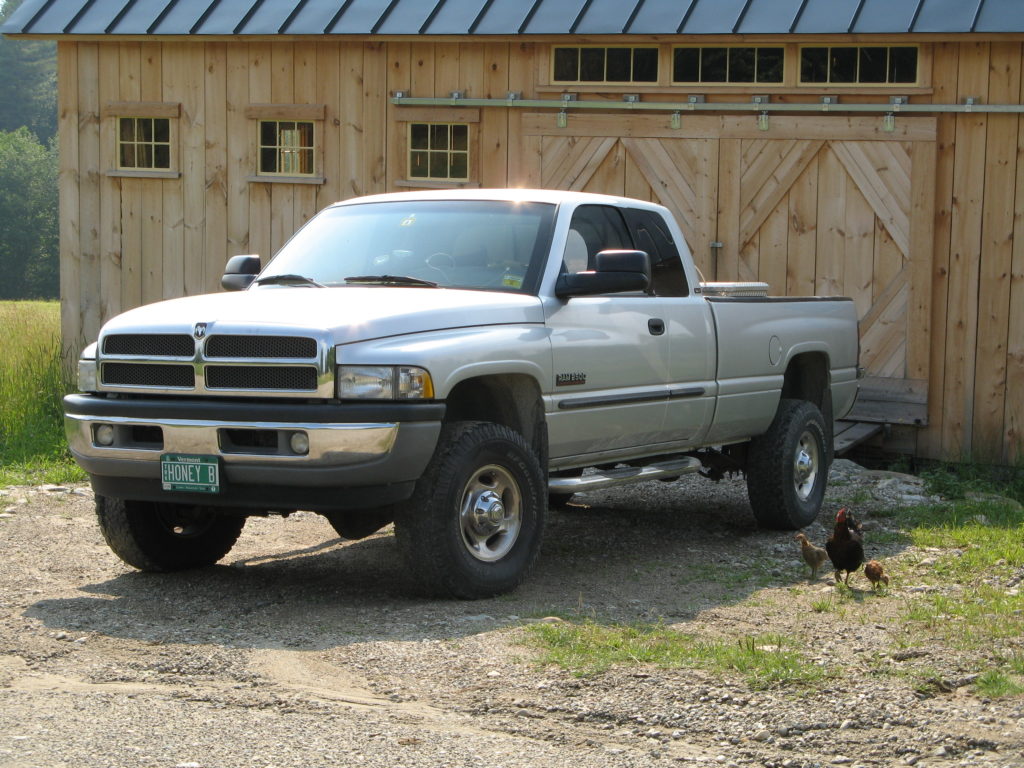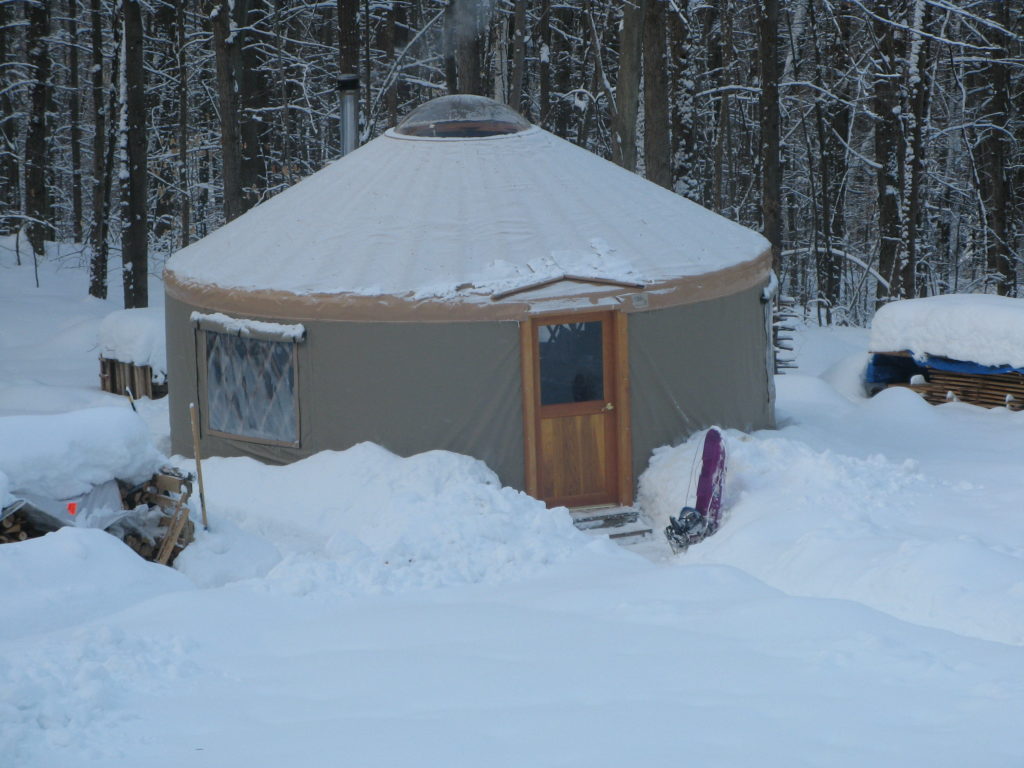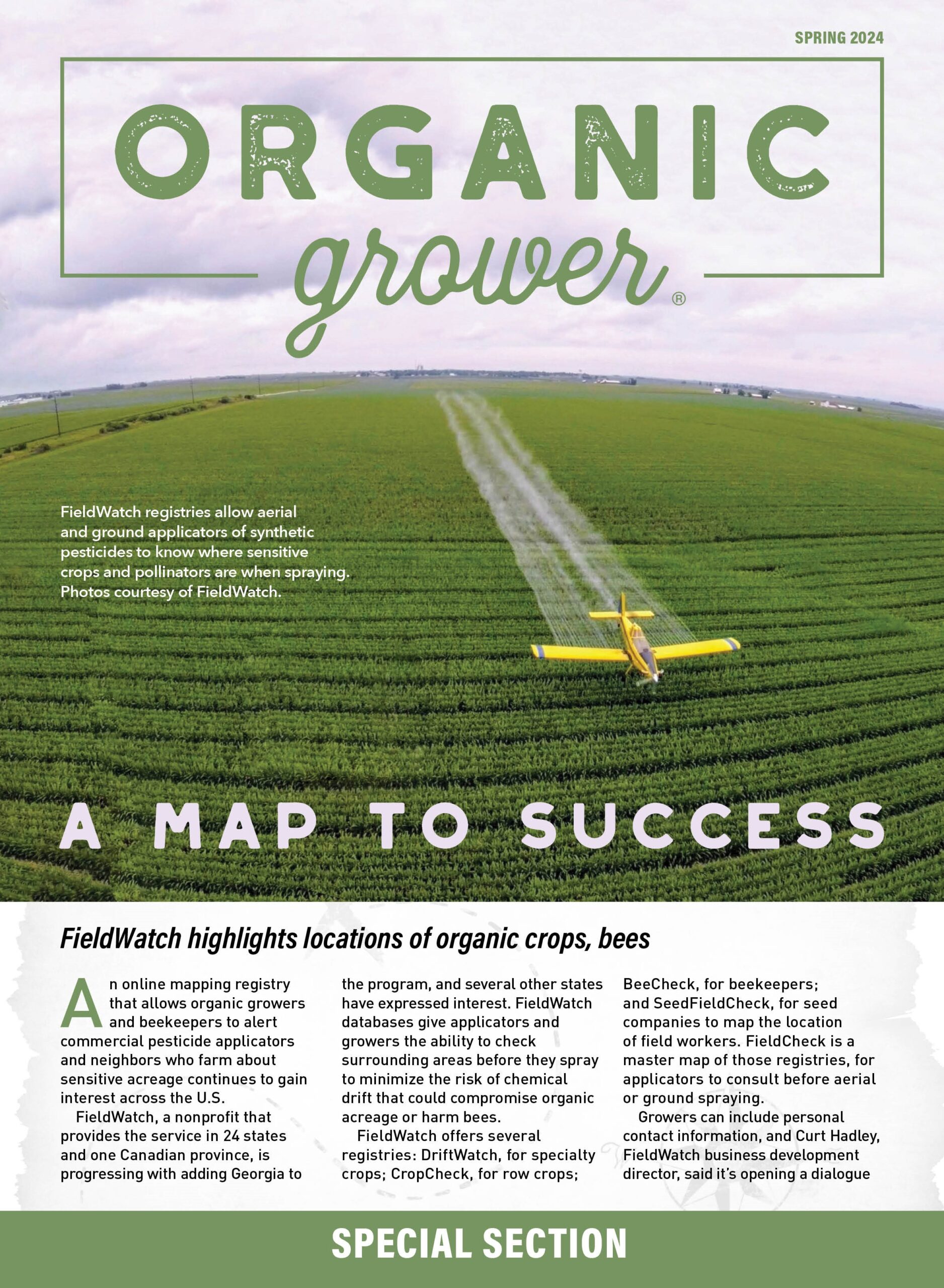
Feb 25, 2021
How author Ross Conrad tackles sustainable beekeeping
Editor’s note: Ross Conrad lives in Middlebury, Vermont, and has been keeping bees and providing pollination services for 28 years.
He is the author of Natural Beekeeping: Organic Approaches to Modern Apiculture, published by Chelsea Green, and has written about organic beekeeping for produce pollination before for Organic Grower.
His wife, visual artist Alice Eckles, interviewed Ross recently about his perspectives on beekeeping and pesticides.
Organic Grower: I know you were a communications major in college. How did you end up keeping bees for a living?
Ross Conrad: I got into beekeeping after having a spiritual experience with a honey bee. During the Winter of 1990, I had a job that provided me with a lot of free time during the day and I found myself doing a lot of soul-searching about the state of the world and my role in the world.
During this time, I was drawn to reading books by Native Americans, in particular, books by an Ojibwa native elder named Sun Bear. Sun Bear ran a teaching community near Spokane, Washington where he taught native wisdom to anyone who wanted to learn and so that Winter I decided I was going to go out west and try to learn some native wisdom.
Then about seven months or so later, after returning home to Middlebury, Vermont a commercial beekeeper, Bill Mraz, for whom I had worked for part-time helping one season with the honey harvest a couple of years earlier asked me if I wanted to work full-time keeping bees with him and his father. Now I think most people in their right mind don’t jump at a career opportunity to work with millions of stinging insects that can potentially kill you, but because of the experience I had during my vision quest, I decided to take the job. Between them, Bill and his father Charles Mraz of Champlain Valley Apiaries in Middlebury had over 100 years of beekeeping experience, and working for the Mraz’s turned out to be a great education in beekeeping.
OG: When we first met you were writing a book, Natural Beekeeping, later published by Chelsea Green. What made you realize you had a book to write on the subject?
RC: Once I started working for a commercial beekeeper, I of course wanted to get a few hives of my own. In caring for my colonies of bees, I refused to use pesticides to control mites and did not want to use antibiotics to control diseases, so I had to find alternative ways to help keep my bees healthy. Back in the 1990s, there was precious little information available on beekeeping without chemicals and drugs. The internet was not as ubiquitous as it is today. Gunther Hauk had written a book on biodynamic beekeeping and the New Zealand beekeepers association had published a book on controlling American Foulbrood without the use of drugs, but that was all I could find on alternative beekeeping methods. This led to a lot of experimentation and trial and error. Once I found a formula that allowed my bees to survive the harsh Vermont Winters most of the time despite being challenged by mites and their accompanying pathogens, I decided to write about it for other beekeepers who might like to learn from my experiences. Someone once said that if you want to read a book about something and find it has not been written, you should be the one to write it, so that is what I did.
OG: Why did you feel you couldn’t in good conscience use the same pesticides and antibiotics as the commercial beekeeping operation where you were working and why should beekeepers use alternative and organic methods instead?

RC: Chemical beekeeping with pesticides, antibiotics and the regular use of artificial diets work to control starvation as well as pests and disease (until resistance develops) but they also cause sub-lethal stress that undermines the health of the colony and can compromise the final products of the hive. If diseases, pests and nutritional issues can be controlled without adversely affecting the health of the bees, the beekeeper, or the final product then why would we not prefer that approach? I view this type of beekeeping as simply an extension of what the bees teach us, which is to do no harm, or the smallest amount of harm possible, while at the same time giving back in a way that makes the world a better place.
OG: How do you travel without fossil fuels? And how do you manage to use even fewer fossil fuels for transportation recently?
RC: One of the biggest uses of fossil fuels for many people is transportation. Since 2005, I have been driving diesel vehicles that have been modified to run on waste vegetable oil that I collect from local restaurants. We installed a photoelectric solar system on our land in 2018 and so in 2019 we bought a used electric vehicle so now we can power our transportation, at least partially, with the fossil-fuel-free electricity we produce at home.
It always came across as hypocritical to me to suggest that others stop burning fossil fuels when I was using them all the time. However, once I made changes that brought my life into better alignment with my values, I was empowered to reach out into the broader community and begin to push for changes there. Thus, I have since become more involved in my state and local politics and currently serve on my Town’s Energy Committee and my County’s Regional Planning Commission.
For me, beekeeping is not only part of my effort to create the right livelihood for myself, but also a spiritual pursuit that constantly informs my decisions and provides inspiration. The typical colony requires 150-200 pounds of honey to get through an entire year, and even though it is estimated that the average worker bee can only produce 1.5 teaspoons of honey over its entire lifetime, it doesn’t fall for the illusion that what it does is insignificant. In the same way, the cumulative impacts of all our decisions from whether we vote, to the sources of the energy we use and the foods we eat may seem insignificant, but they matter. As fellow Vermont beekeeper Kirk Webster has pointed out, our old way of life is dying and a new way is struggling to be born. Are we going to spend our precious time participating in the death or the birth? They are both happening at the same time so we have to choose.
OG: Tell us about your latest writing project.
RC: I have just co-authored a book on the history of beekeeping in Vermont. It is not a complete history but covers all the major events, many of the beekeepers, and most importantly the unique skills of Northern queen production and overwintering that Vermonters have excelled at – skills that I think beekeepers throughout the northern reaches of the U.S. and Canada can benefit from.
OG: What do you do for enjoyment?

RC: For enjoyment, I tend to watch movies, go for walks in the woods, share meals with friends, listen to music and play games or work on puzzles, but mostly I am enjoying everything that I do in life. Working with the bees and the natural world in a way that is meaningful to me; Meeting interesting and innovative beekeepers from all over the world; Trying to figure out how to live more sanely in a world that seems more and more chaotic and insane with every passing year. Life is an incredible adventure.






